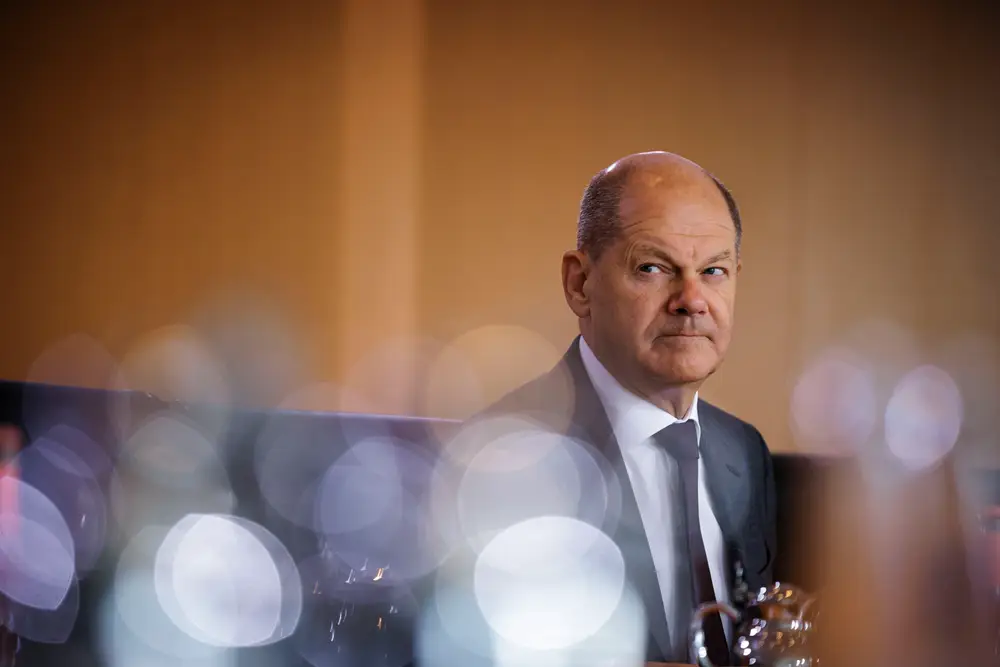Germany dodges a second far-right win, but only just

Federal Chancellor Olaf Scholz’s SPD narrowly edged out the far right in Brandenburg.
After a historic loss to the far-right earlier this month, Germany’s ruling Social Democratic Party (SPD) party narrowly dodged another blow this weekend.
German Chancellor Olaf Scholz’s Social Democratic Party (SPD) is projected to have won the election in the state of Brandenburg, albeit by less than two percentage points.
Preliminary exit polls in Brandenburg showed the SPD at 30.9%, narrowly edging out the far-right Alternative for Germany (AfD) party with 29.2%.
The win likely comes as a relief to Scholz, whose party has ruled the state since German reunification in 1990.
This time, however, the SPD will have to share power with the leftwing populist Sahra Wagenknecht Alliance (BSW) party instead of ruling without restriction.
The BSW was formed only at the beginning of the year, and in the words of its founder Sahra Wagenknecht, leans toward “enlightened conservatism.”
Despite coming in second, the far-right AfD made significant gains in Brandenburg. Earlier this month, its win in Thuringia made it the first far-right party to win a major election in Germany since the Nazis in 1938.
The AfD’s growing popularity has caused concern among its competitors, with Brandenburg’s prime minister Dietmar Woidke threatening to resign if the AfD won in his state.
Germany’s national election is set to take place in September next year.
A 2023 poll showed Scholz was the lowest-polling German Chancellor in history, and Politico said he had even been asked not to campaign in Brandenburg because of his unpopularity.






